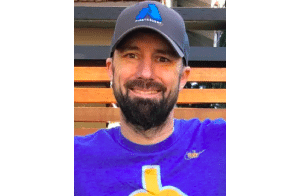It’s been a long time coming.. but at long last CA Senator Ben Huseo can eventually announce the following.
“Ryan’s Law” will expand end-of-life treatment and pain relief options for Californians
September 28, 2021
SACRAMENTO – Governor Gavin Newsom today signed legislation by Senator Ben Hueso (D-San Diego) expanding end-of-life treatment options for Californians by requiring that hospitals and certain types of healthcare facilities in the state allow terminally-ill patients to use medical cannabis for treatment and/or pain relief.
“It is inconceivable to me that, in a state where medical cannabis was legalized more than 25 years ago, those in deepest suffering receiving treatment in our state’s healthcare facilities cannot access this proven, effective, and prescribed treatment,”
Said Sen. Hueso.
“Instead, terminally-ill patients in California healthcare facilities are given heavy opiates that rob them of their precious last moments with family and friends. This is a simple, yet critical, move that will provide relief, compassion and dignity to terminally-ill Californians.”
SB 311, known as “Ryan’s Law,” requires healthcare facilities to reasonably restrict the manner in which a patient stores and uses medical cannabis to ensure the safety of other patients, guests, and employees of the healthcare facility. It does not apply to patients receiving emergency care, and smoking and vaping cannabis is expressly prohibited. The legislation does not require the health facility to provide the medicinal cannabis, nor does it require the facility to dispense the cannabis from the pharmacy.
Ryan’s Law is named after Ryan Bartell, a California native and US Coast Guard veteran who tragically passed away in 2018 after a brave battle with pancreatic cancer. Ryan spent his final weeks in the hospital, where he was given morphine and fentanyl for his pain, which mainly put him to sleep. When his family tried to introduce medical cannabis to his treatment plan so he could stay awake and visit with family and friends in his remaining days, they were told it was not allowed. Ryan’s family had to search for weeks before finding a facility that would allow the use of medical cannabis. Sadly, Ryan only lived a few more weeks, but he was able to have quality of life in his remaining days that he did not have in the first hospital. SB 311 will ensure that no patient, or family, must go through that pain and heartbreak again.
“In the invaluable last days as Ryan fought stage 4 pancreatic cancer, I first-handedly experienced the positive impact medical cannabis had on my son’s well-being, as opposed to the harsh effects of opiates,” said Jim Bartell, father of Ryan Bartell and sponsor of SB 311. “Medical cannabis is an excellent option for relieving pain and suffering in those who are terminally-ill, but most importantly it serves to provide compassion, support, and dignity to patients and their families, during their loved-ones’ final days. Looking at each other, holding Ryan’s hand and telling him how much I loved him during his final moments would not have been possible without the medical cannabis.”
In 2019, Sen. Hueso carried a substantially similar bill (SB 305) that was unanimously approved by both houses in the Legislature but unfortunately vetoed by Governor Newsom. In his veto message, the Governor stated that he begrudgingly could not sign it due to a fear that facilities might lose federal CMS funding if they were to comply. However, CMS has confirmed that the Medicare and Medicaid regulations do not address the use of medical cannabis, and CMS states that it is not aware of a provider that has specifically lost funding or been penalized for permitting the use of medical cannabis. Furthermore, CMS states it would not cite healthcare facilities for allowing medical cannabis use unless the US DOJ has made an adverse finding.
Currently, the US DOJ is prohibited to use any federal funds to interfere with state medical cannabis laws, and the Biden Administration has made every indication that it will not interfere with state cannabis laws, medical or recreational. SB 311 includes a strong safe harbor clause that would allow facilities to suspend compliance should any federal agency initiate an enforcement action or indicate its interest in once again enforcing federal cannabis laws.
“With this confirmation from CMS and the safeguards in the law, we are confident that healthcare facilities have the necessary authority to implement these provisions while ensuring the safety of other patients, guests, and employees of the healthcare facility, compliance with other state laws, and the safe operations of the healthcare facility,” stated Sen. Hueso.






















